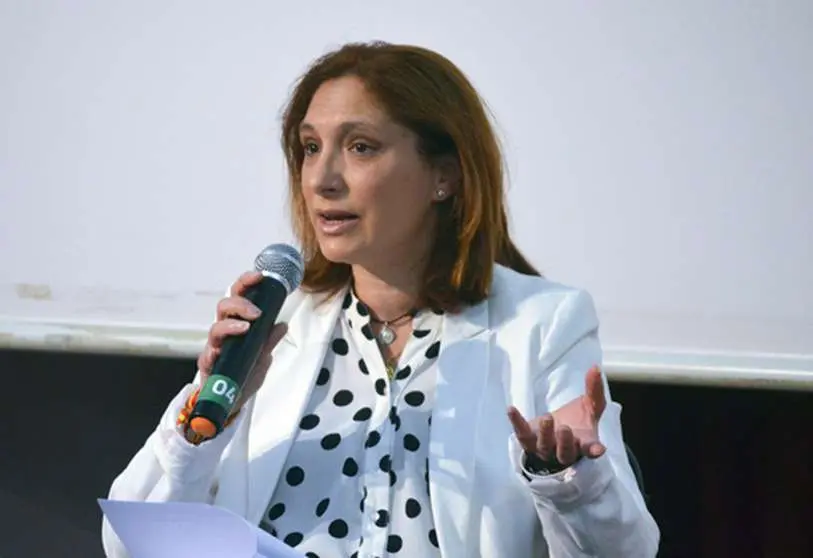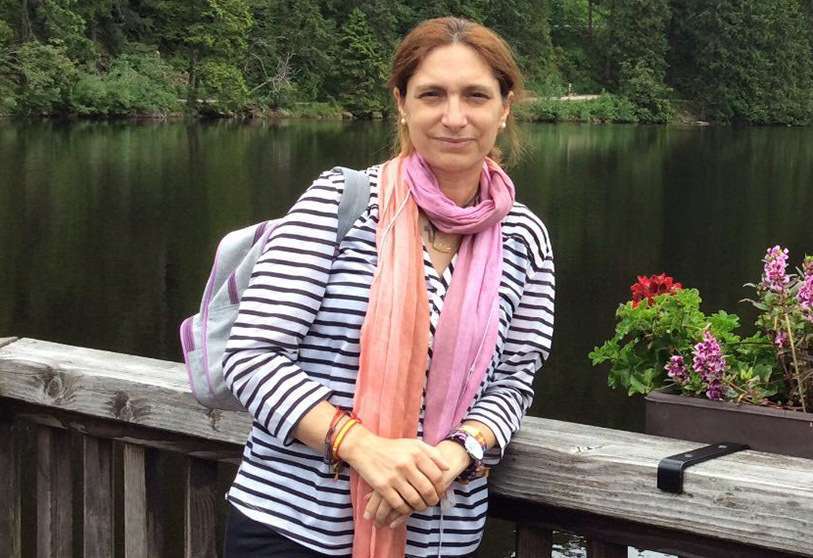Marta González: "The stability of the Middle East does not depend on the actions of the United States"

In the latest edition of "De cara al mundo", on Onda Madrid, we had the participation of Marta González, journalist and international analyst, who analysed the visit of the President of the United States, Joe Biden, to the Middle East and the political movements that have taken place.
What assessment can we make of Joe Biden's visit to the Middle East?
It is still early days and I would dare say that what is important is not what has been published, nor what was on Joe Biden's visible agenda, but what was not on the visible agenda. In fact, this is the first time that a US president has taken so long to visit the region and two strategic partners, but we can now delve deeper into why it has taken him 18 months to visit this strategic area. Secondly, it is the first time that a president has gone with an open and much more flexible agenda than previous leaders have. To begin the analysis, I believe that the result of the US president's visit translates into a headline: the stability of the region does not depend on the actions of the United States; it is listened to and taken into account or not depending on the needs of the partners and the new alliances that are emerging in the region. Thirdly, it has become clear that there is a view in the region that the US is still not a reliable ally. In the case of Saudi Arabia, it seems that the visit revolved around healing the wounds that Biden's accusations against the Crown Prince as the instigator of the murder of a journalist and the allegations of human rights abuses in Saudi Arabia generated, producing this estrangement in bilateral relations. Consequently, they have also heightened the sense of strategic autonomy from the US, not only in Saudi Arabia but in all Gulf countries, including Israel.
It is not easy to regain trust when the US gains energy autonomy through fracking and that part of the world ceases to be so strategic for Washington and turns towards Southeast Asia. At the same time, the Middle East remains a key region where really important things have happened, such as the Abraham Accords, where understanding between Arabs and Israelis completely changes the situation.
The Middle East is a new Middle East, the Abraham Accords put an end to that whole procedure opened in Oslo 30 years ago with the Madrid summit of 1991 and opens a new dimension in relations between the Arab world and Israel, which takes the Palestinian cause out of the equation and relegates it as a matter of Israeli internal national security. This does not detract from the fact that President Biden has made a mention and financial contribution to Palestinian Authority funds through social and health organisations such as a network of hospitals in Jerusalem. It is true that Biden has to give a nod to his government partners and the most radical part of the Democratic Party, and the Palestinian cause cannot be left out of the Democrats' discourse. If there is a before and after in considering Biden's response to the Palestinian cause, where he has made it very clear that Jerusalem is still the capital of Israel, he has met with the president of the Palestinian Authority in Bethlehem, and this is also important because it is another gesture that separates him from the administrative capital of the Palestinian Authority. In addition, he mentioned the management of corruption, pointing out that it is a serious matter and that the issue of support for Zionism is a clear return to the values and the bilateral relationship that Israel has always had with the US as a focus of principles, shared values and states that share a manifest destiny.

Has Biden been able to contribute to a rapprochement so that the Abraham Accords, which are already enhancing relations between the UAE, Bahrain, Qatar and Morocco with Israel, also count for Saudi Arabia?
This new Middle East was not born overnight, it has been going on for more than a decade, it is true that the Abraham Accords have been the catapult to a process that began 20 years ago. I can assure you that in 2006, 2008 and 2011 there were Gulf Arabs strolling peacefully through Jerusalem and visiting Tel Aviv in a personal capacity. These relations have had two axes, fear of the Iranian threat, Iran not only threatens the region because of its expansion of the revolution, but also because of a conception of nuclear potential that is aggressive, but also because the ties of the revolution are expanding very actively in Latin America, it also has ties in Europe, although we do not see them, but it has them, and it is penetrating very strongly into Africa. The fear of Islamic radicalism, jihadism and the Iranian nuclear, but also ballistic threat, was an important step. Now there is a new generation, especially in the Gulf, that is fed up with seeing how Israel, despite all the propaganda, is a country that thrives and has ethnic minorities in their country that are citizens, and the concept of citizenship is important in the Middle East.
Generational change is an important step to move forward in terms of society....
We are talking about an area where identity and nationalism are not always linked to the question of citizenship, we see it in Syria, in Lebanon and to a lesser extent in the Gulf countries, and we see it all over the Middle East. The Arab Springs broke all that unbalanced equilibrium in the Middle East. Today, there is a new generation where 60% of the population is under 30 years old, and it is a digital population, but this is also happening in Iran, where there is a substantial change, also in the mentality of the Arab Emirates, which these days, during the Negev summit, has made it clear that Iran is not the problem, but the aggressive regime of the ayatollahs. In Israel there is also a very favourable relationship with Iran, its people and its culture, and I think that if Trump had continued with his mandate, a rapprochement between Saudi Arabia and the rest of the countries and a warming of relations with Iran would probably have been much closer. That has not been possible and now I think Saudi Arabia needs time and that will depend on health, birth rate and life expectancy, because you cannot go from the seventh century to the twenty-first century overnight.
There are things that still need time.
Indeed, there are issues that still need to be ironed out. Prince Bin Salman has taken very significant steps in modernising his society, listening to the new generations and gradually disassociating himself from the advice of the ulema, those who dictate the theology of the regime, i.e. politics and the Royal Court are linked to the theological ideology of the Wadi, which takes time to disassociate itself from. King Salman is 86 years old, for reasons of life he has little time left, optimistically a decade, in 10 years Saudi Arabia can make the necessary change and the whole Gulf and Middle East can take significant steps if they are given time and if they understand what Arab societies, when you read the press in the Gulf countries, are asking of the West and the United States. Their demand is to have time, to treat us as equals and to think that our security needs are to understand that Iran is an asset that is hurting the whole region.
In Atalayar we can read articles by anti-regime Iranians and what is true is that inside Iran there are numerous protests against the precarious living conditions in an oil-producing country. The regime of the ayatollahs with its rapprochement with the Emirates or Saudi Arabia shows that it feels very unsafe.
It feels unsafe, but that is a dangerous thing.
Very dangerous because it has Hezbollah in Lebanon, Hamas in Gaza, its bases in Syria, as part of its expansionist policy, and it is still very dangerous indeed.
Above all, we are in the territory of hybrid wars. Just a week ago, there was an attempt, which is nothing more than a test, to send Iranian drones to Karish. All this, flying over Israel's oil wells and gas platform bordering Lebanese territorial waters.
They also want to sell them to Russia for use in the war in Ukraine.
Of course, and there is a major maritime conflict there because it is not being discussed, but for some time now there have been talks being boycotted by Hezbollah, or rather by Iran through Hezbollah, with Lebanon. In fact, Lebanon may have established diplomatic relations with Israel in '98, that year was the first time it came very close to signing a peace agreement with Lebanon which was simply to place Hezbollah within the Lebanese state structure and separate it from Iran.








